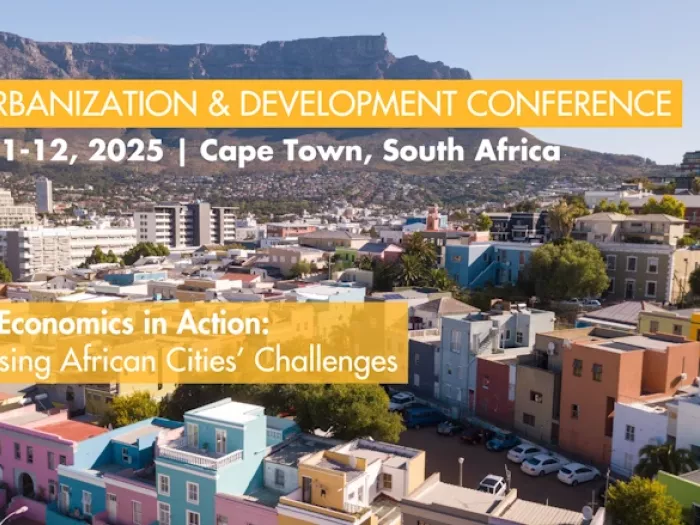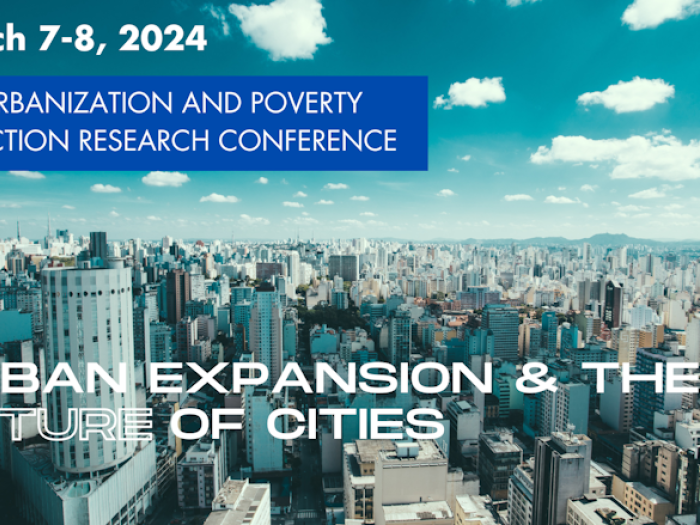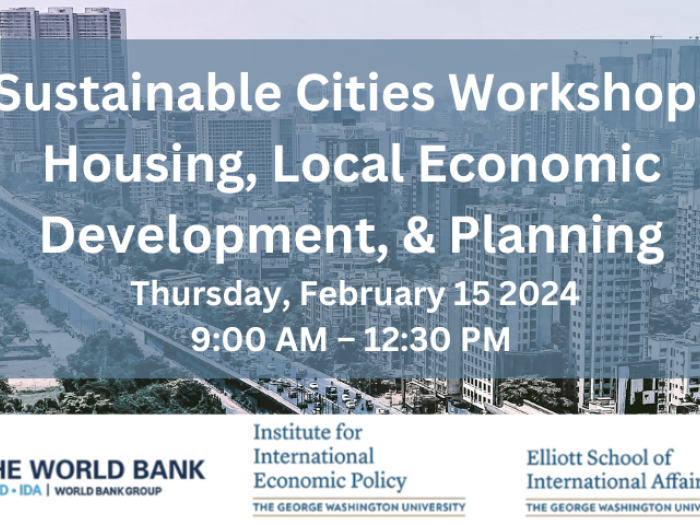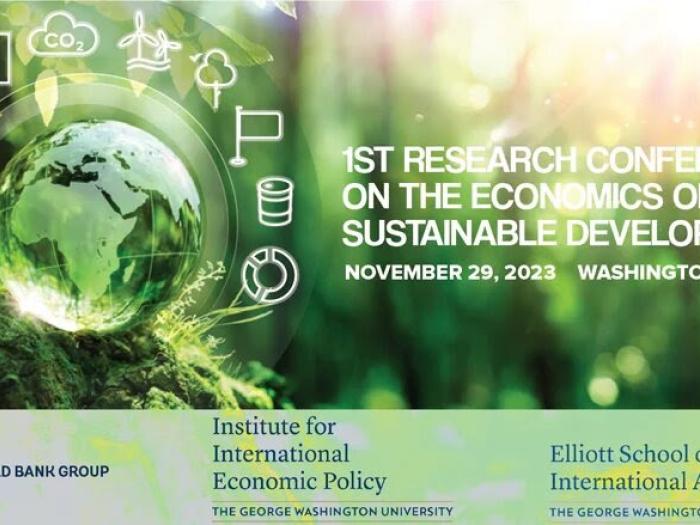Local Sustainable Governance Lab
The Local Sustainable Governance Lab focuses on enhancing local governance's role in addressing climate change and sustainability challenges. Led by core faculty from various disciplines at the Elliott School of International Affairs (ESIA), the Policy Lab’s primary goal is to make local governance around the world an effective force for measurable progress in the area of climate change and sustainability. Recognizing that most climate action happens at the local level, the initiative seeks to overcome the significant challenges local policymakers face, such as data management, system coordination, and just infrastructure development.
The Policy Lab's work centers on three key themes:
- Addressing challenges of data-driven approaches to climate and sustainability decision-making for local governments: This theme will explore a better understanding of the barriers limiting local policymakers’ use of sustainability-related data resources, and understanding and addressing where data and data access are currently falling short and what interventions can improve local-level data-driven decision-making.
- Sustainable urban policy and rural-urban systems: achieving effective sustainability policy within complex local systems: This theme will seek an understanding of the critical linkages among systems transformations at the local level; explore drivers of successful city-level climate policymaking; and an understanding of citizen engagement in local sustainable policymaking.
- How can local policymakers facilitate smart, effective, and just infrastructure and technology?: This theme involves developing data & analysis tools for local policymakers to assess the value, impacts, and equity of proposed infrastructure and technology to support decision-making; and understanding the pursuit of justice within local sustainable policymaking.
By focusing on these areas, the lab aims to become a leader in research and action on local-level climate and sustainability governance, helping cities and regions around the world to make informed, impactful decisions.
The Lab supports the following event series, and the events and faculty associated with the Lab are listed below:
- Urbanization Conference
The Urbanization and Poverty Reduction Research Conference brings together academics and development practitioners to present and discuss questions relating to People, Markets, and Cities. In particular, the conference will focus on effective land, housing, transport, and local labor market policy in cities and their implications for economic development and social inclusion.
- Sustainable Development Conference
IIEP launched the World Bank-GWU-UVA Conference on “The Economics of Sustainable Development." in November 2023. This conference brought together academics and development economics practitioners to present and discuss pressing questions relating to sustainable development, a theme central to the World Bank’s mission of tackling poverty on a livable planet.
- Sustainable Cities Workshop Series
The World Bank – GWU Sustainable Cities workshop series brings together academics and development practitioners to present and discuss key questions of common interest relating to Sustainable Urbanization. Each workshop in the series focuses on a particular topic relating to cities in developing countries. The workshops are hosted by the World Bank (Urban, DRM, Resilience and Land Global Practice) and George Washington University (Institute for International Economic Policy & Department of Economics).
- Big Data and Sustainable Governance Series
This event series will bring prominent academics and policy practitioners together to discuss how data innovations can improve our understanding of, policy for, and best practices in local sustainable governance. Potential topics include cell phone data, urban heat island measurements, slum mapping, citizen science, etc.
- Sustainable Subnational Governance Series
This series convenes events with local policymakers (e.g., mayors) to discuss more general policy challenges related to climate change and sustainability.

March 30, 2026 to March 31, 2026
10th Urbanization & Development Conference

June 11, 2025 to June 12, 2025
9th Urbanization & Development Conference (South Africa)

March 7, 2024 to March 8, 2024
8th Urbanization and Poverty Reduction Conference

February 15, 2024 - 9:00 AM
Sustainable Cities Workshop: Housing, Local Economic Development, & Planning

November 29, 2023 - 8:00 AM
1st World Bank-GWU-UVA Research Conference on “The Economics of Sustainable Development”

May 9, 2023 - 9:30 AM
Sustainable Cities Workshop on “Urban Inclusion and Development”

March 30, 2023 - 12:00 PM
Thriving – Making Cities Green, Resilient, and Inclusive in a Changing Climate


